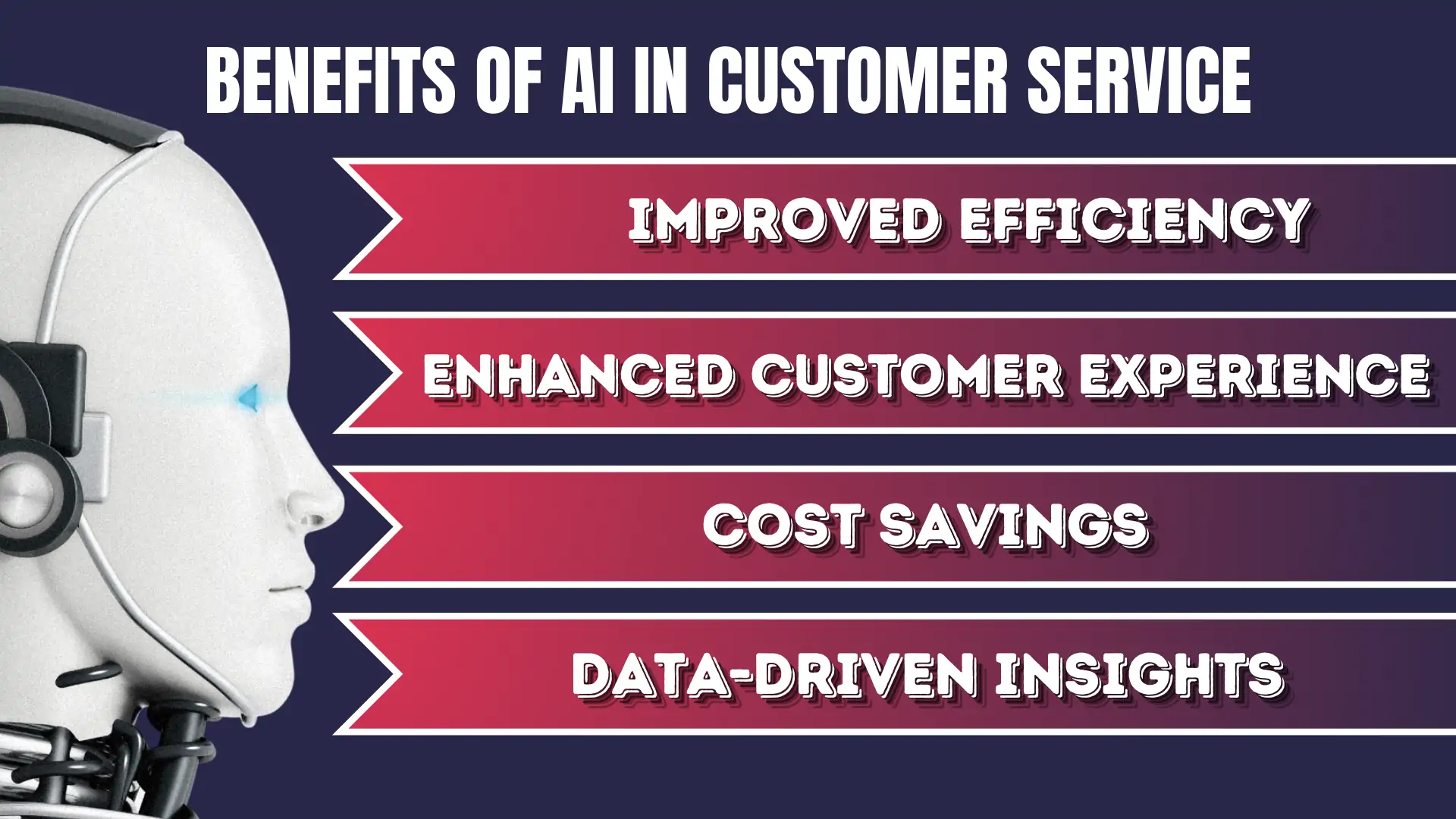
Implementing Effective AI Solutions in Customer Service Platforms
The sale of products and services has become very competitive in the current world of business, and this is where customer service comes in. Good customer service is not only a way of making sure that the customers continue to shop with the business but it also boosts the reputation of the business and leads to growth.
The emergence of AI is making customer service more effective and diverse, meeting expectations more often than not. This article discusses the application and implementation of AI solutions in customer service and their integration into call center solutions.
The Evolution of Customer Service with AI
AI has spread its wings over numerous industries, and customer service is one of the industries. It is noteworthy that the prior conventional customer service means frequently, though efficiently, involved human beings as the means of addressing the clients, which was appropriate but costly and occasionally slow.
AI, on the other hand, provides the opportunity to make the processes of interacting with customers more effective and efficient by delivering instant and relevant responses while allowing customer service agents to perform the work of assessing those interactions and then providing a more personal touch as per each customer’s need.
Key AI Technologies in Customer Service
Every technology possesses specific features that, if implemented in an advanced contact center for on-premise and other Customer Relation Management programs, make a huge difference when it comes to service delivery. Various AI implementations play crucial roles in the customer service domain or the digital spaces where they operate.
Chatbots and Virtual Assistants
Chatbots and Virtual Assistants are some of the most used forms of AI in the customer services department. These tools are capable of performing all kinds of tasks; this may range from solving the most basic questions such as frequently asked ones to the complex ones such as the calculation of transactions.
Depending on the call center applications where chatbots are implemented, they can handle first-level customer requests effectively, freeing up senior employees to solve more intricate problems. It improves the customer experience since customers are not made to wait longer for the other service.
Natural Language Processing (NLP)
With its help, the meaning of the human language is processed and the response is given in the same language as the input. It plays a core role in the emergence of smart and natural language-based digital assistants like chatbots.
The NLP can also be used in the real-time analysis of consumer interactions to avail insights on the improvement of service delivery. For instance, incorporating NLP into call center software can help evaluate transcripts to determine agent training needs and identify recurrent complaints.
Machine Learning (ML)
ML algorithms do not come with a predetermined set of instructions on how to act or what to do; instead, they are trained to react and adapt with experience on their own as they are fed new data upon which they try to modify their results and performance for the better.
In customer service, for instance, bespoke strategies that are created based on customers’ characteristics can be forecasted by ML. For instance, a call center AI solution can evaluate the behavior of clients by looking at past data and orienting responses in advance. In this level, personalization of customers is achieved hence improving customer satisfaction and loyalty.
Predictive Analytics
Predictive analytics is the ability to analyze past data for future occurrences with a reasonable degree of accuracy. , within enabling claim states to support their customers, this can imply anticipating precisely when a particular customer may require help or detecting certain problems before they develop.
It becomes evident that the implementation of predictive analytics in call-center solutions will also go a long way toward ensuring that companies are equipped with a proactive mechanism to meet customer needs, thereby increasing customer satisfaction and decreasing churn.
Implementing AI in Customer Service Platforms
Implementing AI in customer service platforms requires a strategic approach. Here are some steps businesses can take to ensure successful integration:
Assess Needs and Objectives
The nature, extent, and goals of a company’s customer service should also be evaluated before deploying AI. Identify which roles and functions could be most suitable for the use of AI and what fields could receive the greatest value increase from the implementation of AI.
For instance, if your call center solution is constantly swamped with simple calls and queries, adding AI chatbots for basic tasks will ease the workload of agents on the calls dealing with the more intricate problems.
Choose the Right AI Technologies
Therefore, it is crucial to choose adequate AI technologies to achieve the best results. Reflect upon the variety of functional AI tools and their capacity to meet your various obligations. For instance, if the outcome of interest is response time, then solutions like chatbots and NLP would be most effective.
If one wants to improve the perception of personalization, the use of ML and an element of predictive analytics should be called forth.
Integrate AI with Existing Systems
In simple words, it should be capable of integrating smoothly with the established customer service tools and call center programs seamlessly.It is also important to ensure that the AI tools you adopt are compatible with your current systems.
This may involve sourcing the services of AI integration specialists or building a separate system from scratch to suit the intended application.
Train and Support Your Team
It isn’t just about putting AI into practice and solving technical problems but also about how people are dealt with. You must spend time giving extensive training to your customer service team about the artificial intelligence tools they are expected to use.
Ensure your team is ready for change and given assurance that they are not replaced but their work is added to by the AI. Stress the idea that AI will be a tool that will complement the workers’ efforts.
Benefits of AI in Customer Service
Integrating AI into customer service platforms and call center solutions offers numerous benefits:
Improved Efficiency: AI is built to respond to numerous calls and address basic requests within a short time while keeping an optimal level of efficiency. The result of such a system is a quicker response to customer queries and better handling of the same.
Enhanced Customer Experience: AI-driven tools provide personalized and consistent service, improving customer satisfaction. Chatbots and virtual assistants can offer instant support, while predictive analytics can help anticipate and address customer needs proactively.
Cost Savings: Reducing manual work through the integration of AI relieves the need for human resources to perform repetitive and time-consuming duties which helps to save much cost. Organizations will be able to optimally utilize their resources to invest in areas that can be supported by human intelligence.
Data-Driven Insights: With the development of AI technologies, important decision-making information becomes available and enables strategic decisions to be made.It benefits the organization by allowing them to study customer behavior, identify trends, and improve customer relations.
Challenges and Considerations
While the benefits of AI in customer service are substantial, there are also challenges and considerations to keep in mind:
Data Privacy and Security: AI systems rely on large amounts of data, raising concerns about data privacy and security. Businesses must ensure they comply with relevant regulations and implement robust security measures to protect customer data.
Maintaining Human Touch: While AI can handle many tasks, maintaining the human touch in customer service remains essential. Businesses should ensure that customers can easily access human agents when needed and that AI tools enhance, rather than replace, human interactions.
Continuous Improvement: AI systems require continuous monitoring and optimization to remain effective. Businesses must invest in ongoing training, updates, and improvements to ensure their AI tools deliver the desired results.
Addressing Resistance to Change: Implementing AI may face resistance from employees who fear job displacement. It’s crucial to communicate the benefits of AI and involve employees in the transition process to alleviate concerns and ensure a smooth implementation.
Conclusion
Customer relations solutions are some of the areas of its application where AI may bring improvements in terms of increasing efficiency, and cutting costs. It is clear that through the careful utilization of certain AI technologies like chatbots, NLP, ML, and analysis of big data using predictive analytics, businesses can revolutionize their services.
Effective use requires skillfully combining components and continuously making modifications to increase efficiency.
Through handling such challenges and duly considering technology alongside the human touch, organizations are uniquely placed to gain maximum value from the use of artificial intelligence as a means to deliver outstanding customer value and, therefore, sustainable organizational prosperity.
FAQs
What are the Implications of AI Solutions in Customer Service Platforms?
The adoption of AI in customer service interfaces is the incorporation of artificial intelligence, technologies like chatbots, natural language processing (NLP), machine learning (ML), and predictive analytics as tools and features to support and enrich consumer interactions.
What types of advantages does the use of AI-powered chatbots provide to customer service platforms?
One of the interesting trends in customer engagement is AI chatbots since they can answer client requests in real time, they can provide support at any time of the day.
Why natural language processing (NLP) is important in AI solutions for customer service.
This is a critical area as it helps the AI systems to be able to comprehend what a human is saying or writing. In customer service applications, we can employ NLP in order to enable chat bots or virtual companions to interact and understand cues, and questions, and provide suitable responses.




